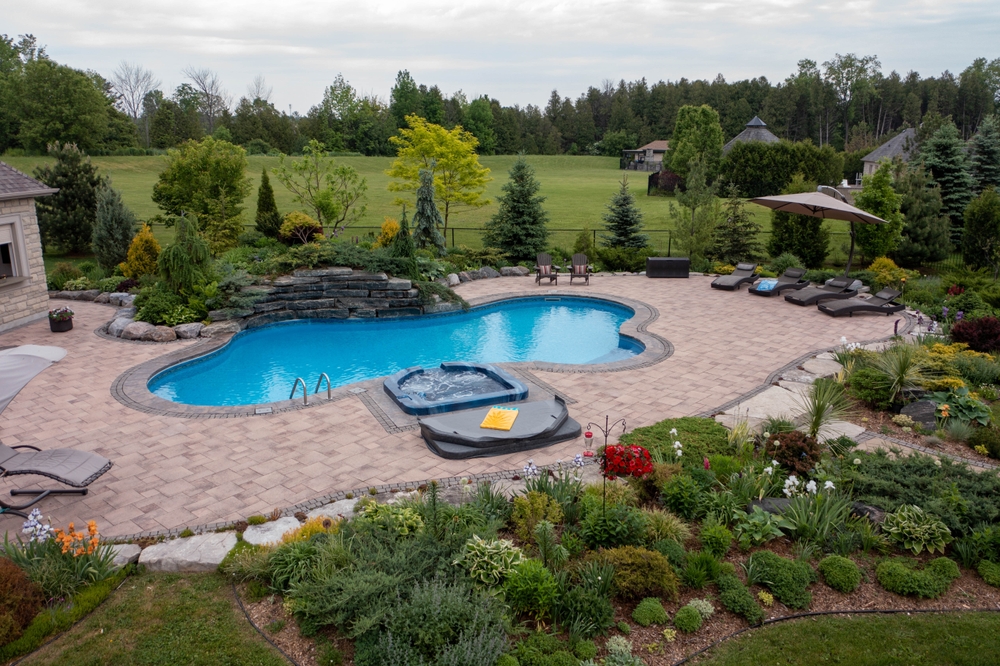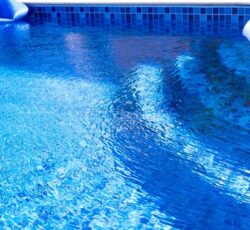Transform Your Backyard Oasis: Unveiling the Top Benefits of Installing a Pool Irrigation System
Imagine stepping into your backyard on a hot summer day, greeted not only by the shimmering surface of your pool but also by lush greenery and vibrant flowers surrounding it. This picturesque scene isn’t just a dream anymore. With advancements in technology and landscaping, installing a pool irrigation system can transform your outdoor space into a true oasis. In this blog, we’ll explore what a pool irrigation system is, its benefits, maintenance requirements, and why it’s a worthy investment for enhancing your home.
What is a Pool Irrigation System?
A pool irrigation system integrates landscaping irrigation directly around your pool area. Unlike traditional sprinkler systems that water large areas, a pool irrigation system is designed to efficiently water specific zones, typically close to the pool’s edge. This ensures that plants receive adequate moisture without excessive water use or runoff.
Key Features of a Pool Irrigation System:
- Precision Watering: Targets plant roots effectively.
- Aesthetic Integration: Blends seamlessly with pool design.
- Efficient Water Usage: Minimizes waste.
Benefits of Installing a Pool Irrigation System
1. Enhanced Aesthetics
One of the primary benefits of a pool irrigation system is its ability to enhance the visual appeal of your backyard oasis. By keeping plants healthy and vibrant, it creates a lush, green backdrop that complements your pool area. Whether you prefer tropical foliage, colorful flowers, or minimalist succulents, a well-designed irrigation system can showcase your landscaping choices beautifully.
2. Optimized Plant Health
Plants surrounding pools often face unique challenges such as water evaporation, chlorine exposure, and soil nutrient depletion. A pool irrigation system addresses these challenges by delivering water directly to plant roots. This targeted approach promotes healthier growth and reduces the risk of overwatering or underwatering, which are common issues with manual watering methods.
3. Conservation of Water
Water conservation is becoming increasingly important in landscaping practices. A pool irrigation system is designed with efficiency in mind, delivering water precisely where it’s needed most. By reducing water waste and runoff, it not only saves water but also lowers your utility bills over time.
4. Reduced Maintenance
Unlike manual watering, which requires constant attention and adjustment, a pool irrigation system automates the watering process. Once installed and programmed, it operates on a schedule tailored to your landscape’s needs. This frees up your time and ensures that your plants receive consistent care even when you’re away.
5. Temperature Regulation
In hot climates, maintaining a comfortable temperature around your pool can be challenging. Strategically placed plants cooled by an irrigation system can create a microclimate that lowers ambient temperatures. This natural cooling effect enhances your outdoor experience and reduces the need for artificial cooling methods.
What Maintenance is Required for a Pool Irrigation System?
While a pool irrigation system offers many benefits, proper maintenance is crucial to ensure its effectiveness and longevity.
Regular Inspection and Adjustments
Periodically inspect the system for leaks, clogs, or damaged components. Adjust sprinkler heads to ensure they’re targeting the intended areas without overspray into the pool.
Seasonal Adjustments
Adjust watering schedules seasonally to accommodate changes in temperature and plant water requirements. During hot, dry periods, plants may need more frequent watering, while cooler seasons may require less.
Monitoring Water Quality
If your pool irrigation system uses water from the pool, monitor chlorine levels and water quality to prevent potential harm to plants. Consider using a separate water source if chlorine levels are too high.
Professional Servicing
Schedule annual maintenance with a professional landscaper or irrigation specialist. They can conduct thorough inspections, identify potential issues, and perform necessary repairs or upgrades to keep your system in top condition.
Winterization
In colder climates, winterize your pool irrigation system to prevent freezing and damage during cold weather. This may involve draining the system or insulating exposed pipes and components.
Conclusion
A pool irrigation system isn’t just a functional addition to your backyard; it’s a gateway to transforming your outdoor space into a stunning retreat. By enhancing aesthetics, promoting plant health, conserving water, and reducing maintenance, it offers numerous advantages for homeowners looking to elevate their poolside experience. Whether you’re redesigning your current landscape or planning a new pool installation, consider the long-term benefits of integrating a pool irrigation system. With proper installation and maintenance, it can enhance not only the beauty of your backyard but also your overall enjoyment of your outdoor living space.
Transform your backyard oasis today with a pool irrigation system and discover a new level of relaxation and natural beauty right at home.
Need Pool Contractors In Los Angeles, CA?
Since 1999, Avanti Pools, Inc. has proudly been your locally owned and operated source for premier custom-designed pools and spas, serving Los Angeles and the surrounding areas with unparalleled quality and service. The experts at Avanti Pools, Inc. are A.P.S.I. certified professional pool builders that hold over 60 years of combined experience specializing in swimming pool and spa design and construction, automatic pool and spa covers, solar heating, self-cleaning pools, and much more. Our area of expertise lies in special engineering on difficult sites, so we are capable and fully equipped to handle even the most challenging of projects. Call the expert pool builders at Avanti Pools, Inc. today!


 Pools are cherished amenities in many homes and establishments, providing a space for relaxation, recreation, and socializing. However, maintaining a pool can be labor-intensive and time-consuming. Traditional pool maintenance methods often involve manual cleaning, chemical balancing, and frequent monitoring. Pool owners are constantly looking for innovative solutions that simplify and streamline this process. In recent years, pool irrigation systems have emerged as a revolutionary technology that offers significant advantages over conventional maintenance methods. In this blog post, we will explore the various benefits of
Pools are cherished amenities in many homes and establishments, providing a space for relaxation, recreation, and socializing. However, maintaining a pool can be labor-intensive and time-consuming. Traditional pool maintenance methods often involve manual cleaning, chemical balancing, and frequent monitoring. Pool owners are constantly looking for innovative solutions that simplify and streamline this process. In recent years, pool irrigation systems have emerged as a revolutionary technology that offers significant advantages over conventional maintenance methods. In this blog post, we will explore the various benefits of 
 How To Choose The Right Pool Sanitation System For Your Pool
How To Choose The Right Pool Sanitation System For Your Pool